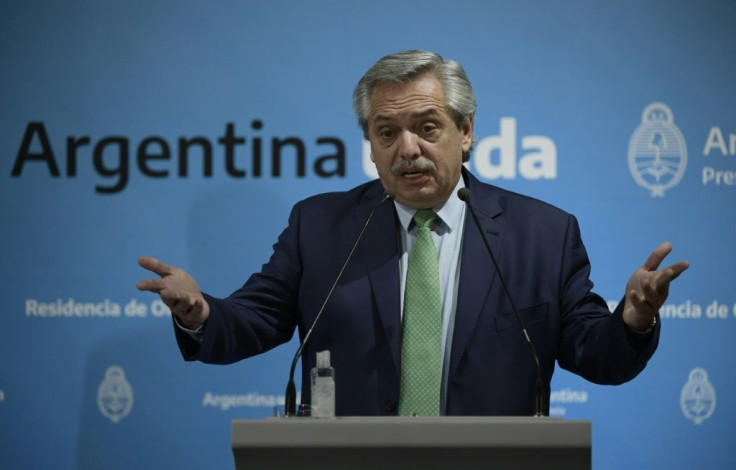Argentina To Present Plan To Restructure Private Debt

Argentine President Alberto Fernandez said his country has found itself in "a sort of virtual default" as it prepares to present a plan to restructure its debt to private creditors on Friday.
Buenos Aires will propose a 62 percent discount on bond interest, worth $37.9 billion, and 5.4 percent on debt capital, worth another $3.6 billion.
"We've tried to understand the creditors' preferences, (hence) the proposal entails a greater reduction in interest than capital," Economy Minister Martin Guzman said Thursday.
The recession-hit South American country is also seeking a three-year grace period to delay repayments until 2023.
The Buenos Aires stock exchange closed the day 6.2 percent down following the debt restructuring announcement.
That came after three days of gains, including almost 6.6 percent on Tuesday.
Argentina is attempting to renegotiate almost $69 billion of its debt.
Some $44 billion of that is owed to the International Monetary Fund. Guzman said the government is working to reorganize its repayment structure with the global financial body.
"We're continuing to work with the IMF in a constructive manner... on a new program in which Argentina won't have to disburse any capital to the IMF in the next three years," Guzman said.
Fernandez insisted that Argentina was prepared to pay its debts but could not delay its other needs, which had now increased multifold "due to the pandemic debacle."
"We're in a sort of virtual default," he said.
The center-left president inherited an economic crisis when he took over the country from market-friendly Mauricio Macri in December.
Argentina owes $311 billion in total, which amounts to more than 90 percent of GDP.
Argentina has been in recession for two years, which the IMF expects to worsen based on its latest projection that the country's GDP will fall 5.7 percent this year, after a 2.2 percent drop last year and 2.6 percent in 2018.
The country has been on lockdown since March 20 in a bid to contain the spread of the coronavirus, with the restrictive measures due to last until April 26.
The measures have hobbled the economy, as have similar regulations in other countries all over the world.
© Copyright AFP {{Year}}. All rights reserved.





















